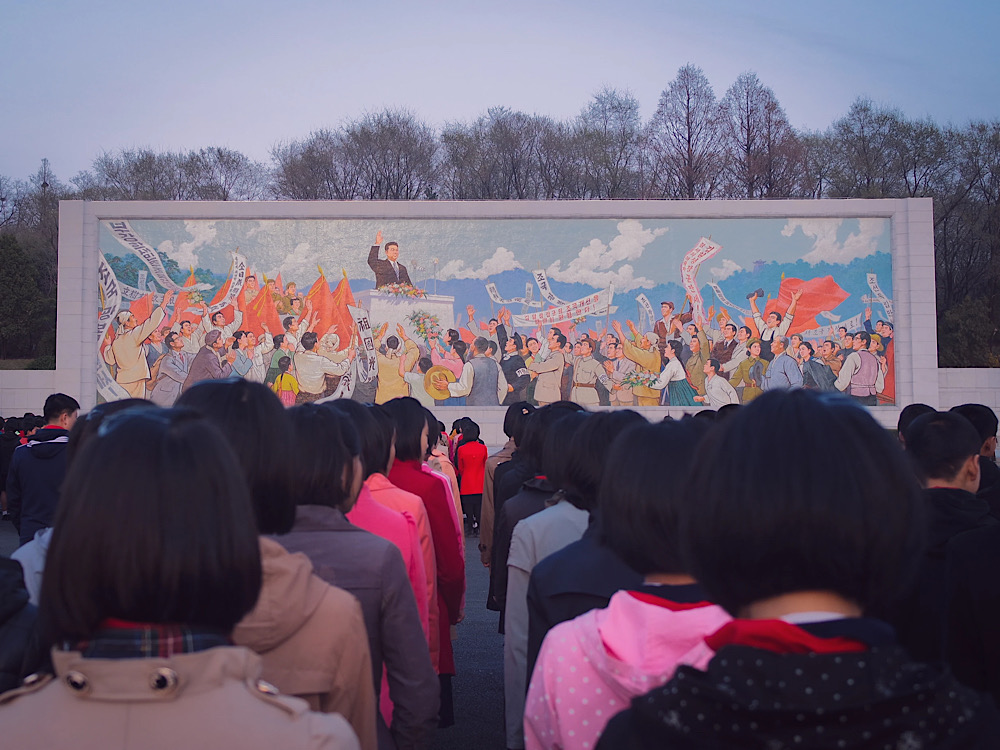Pyongyang reopens to tourism to boost economy (and image)
After years of harsh lockdown due to the covid-19, the country is now trying to give industry a new boost. It is focusing on domestic tourism, to expand international tourism at the same time (with an eye on the environment). This is also an opportunity for propaganda, to improve the consideration of a nation 'closed' to the outside world.
Seoul (AsiaNews) - Pyongyang has approved a law to give new stimulus to the tourism industry in the country, reports the Korean Central News Agency, according to which the green light for the new law was given on 30 August, during a plenary meeting of North Korea's Supreme People's Assembly (SPA).
The details are not yet fully known, but Kcna reports that the aim will be to boost domestic tourism, while expanding international tourism. The law also mentions the need for the tourism industry to ensure a positive experience for future tourists, while also protecting the environment.
The news suggests that the country is finally ready to reopen its borders - sealed since 2020 due to a pandemic in one of the strictest lockdowns in the world - and to focus on a gradual economic recovery.
And although the government has long declared that it has not reported any cases of Covid-19 on its territory, the closure with foreign countries, in particular with China, has had dramatic consequences for the nation and its citizens, increasing their insecurity food and limiting the already compromised international trade, with an economic contraction of 4.5% in 2020 alone.
According to Lee Jongkyu, senior researcher at the Korea Development Institute, the consequences of the pandemic and the closure of the borders on the trade of unsanctioned goods have proved "almost as significant" as "the effect of the sanctions".
However, the need to restore stimulus to the economy in the post-pandemic period is not the only reason that makes tourism so attractive. It represents one of the key industries for North Korea, which in its economic growth has to deal with the heavy sanctions that limit international trade and energy development, highlighting its dependence on China and hindering the objective of self-sufficiency expressed by the Juche, the political philosophy underlying North Korean ideology.
However, the tourism sector is not subject to UN sanctions. As a result, it represents an important economic and propaganda opportunity for the government, as well as being one of the few legal ways to obtain foreign currency, which is necessary to ease inflation and stabilize exchange rates.
Not only that, the strict control of the authorities, who place the industry in the hands of state-owned companies, guarantees North Korea control over part of the image, diversifying the narrative and improving it internationally.
The first developments date back to the 1980s, but the first significant changes in the sector only arrived in 2013. In fact, in that year, Kim Jong Un, leader for only two years, announced byungjin, a strategy that aimed not only at developing the nuclear arsenal but also at developing the economy, and the tourism industry was among those to benefit from it .
The supreme leader was in fact determined to capitalize on the tourism boom that was starting to affect Asia Pacific and which in 2013 saw international visitors to the continent grow by 5% compared to the previous year.
The development of infrastructures, study paths for the professional preparation of personnel and the organization of organized tours for foreigners have thus given rise to exponential growth, with a +400% between 2014 and 2019.
With the end of the pandemic and the reopening of borders, the tourism industry, heavily affected by the years of lockdown, could experience the same growth seen in the last decade.
The attention that North Korea also has for the industry, in particular the mention towards the attention to the environment, which follows an international trend that increasingly points to the development of a sustainable tourism industry, suggests that the country is aiming for development that can increasingly look to the foreign market.
Koryo Tour, one of the few travel agencies to offer organized tours in the country, has communicated that it expects the reopening of the borders as early as 2023, and the recent resumption of flights between Pyongyang and China seems to support these expectations.
12/02/2016 15:14







.png)










